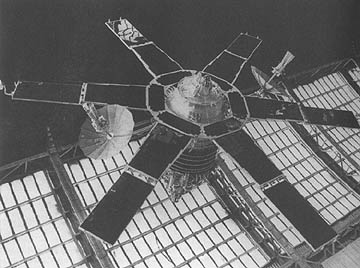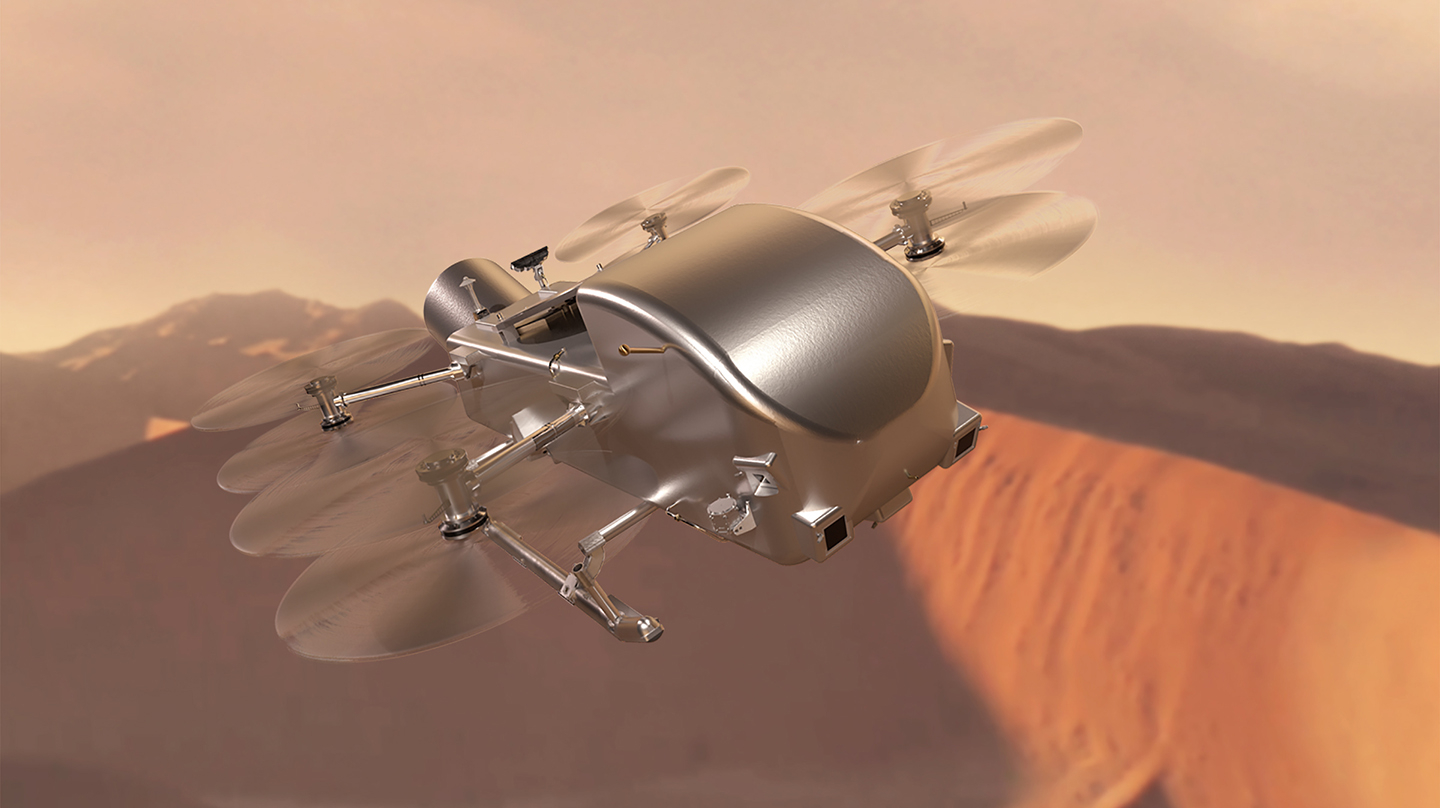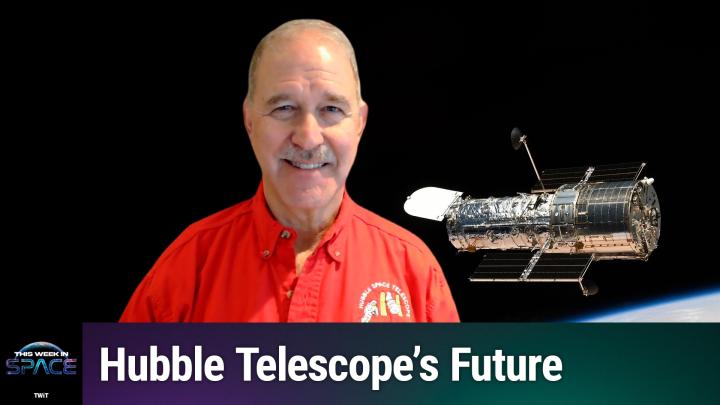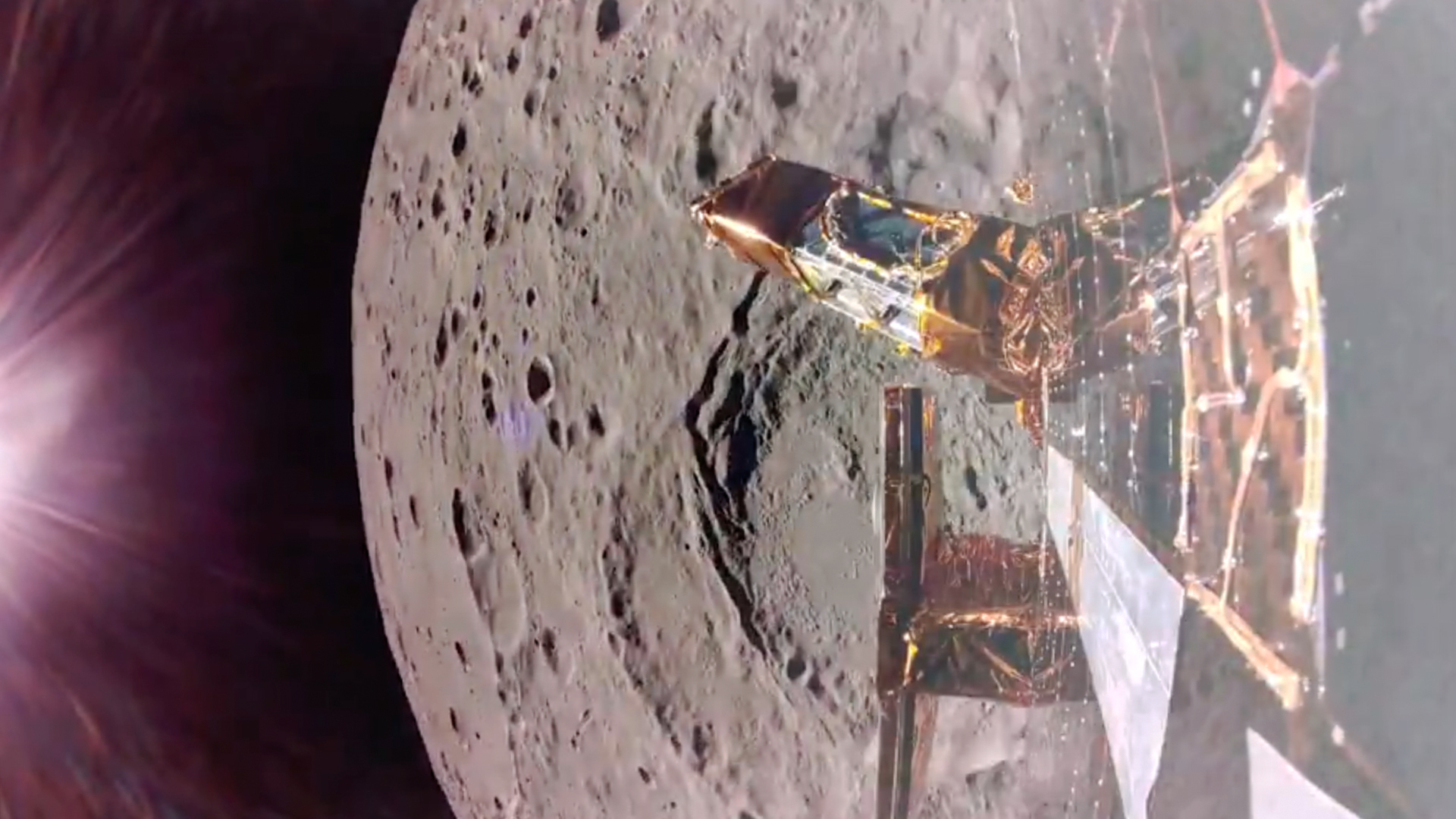Russian Satellite Falls Into Pacific Ocean: Report

A dead Russian military satellite that circled the Earth for more than 15 years has plunged into a watery grave in the Pacific Ocean, according to Russian news reports.
The military communications satellite, called Molniya 1-89, fell to Earth in a weekend death dive on Saturday (April 7), according to Russia's Ria Novosti news agency.
According to an early analysis, the satellite's remains likely crashed somewhere in the Pacific at about 3:17 a.m. Moscow time (0017 GMT), a Russian space agency official told Ria Novosti.
The 1.6-ton Molniya 1-89 satellite was part of a fleet of communications satellites used for Russia's military services. The satellite series was replaced in 2006 by the newer Meridian-class spacecraft.
Just before its fall to Earth, the Molniya 1-89 satellite was in an orbit that reached an altitude of about 1,477 miles (2,378 kilometers), according to Russian space officials.
The death plunge of the Molniya 1-89 spacecraft is the latest of several dead satellites that have re-entered Earth's atmosphere and met fiery demises.
In March, the wayward Russian communications satellites Express-AM4 fell to Earth after spending months in the wrong orbit. The satellite's fall was lamented by one company, Polar Broadband, Ltd., which had hoped to broker a last-minute deal with Russian space officials to repurpose the satellite to aid researchers in Antarctica.
Get the Space.com Newsletter
Breaking space news, the latest updates on rocket launches, skywatching events and more!
The descent of Express-AM4 followed the January re-entry of the failed Russian Mars moon probe Phobos-Grunt, as well as the 2011 crashes of NASA's Upper Atmosphere Research Satellite and Germany's X-ray space observatory ROSAT.
Unlike Express-AM4 and Phobos-Grunt, which were failed space missions, the UARS and ROSAT satellites were successful probes that had long ago accomplished their missions and were expected to destroy themselves upon re-entry.
Follow SPACE.com for the latest in space science and exploration news on Twitter @Spacedotcom and on Facebook.
Join our Space Forums to keep talking space on the latest missions, night sky and more! And if you have a news tip, correction or comment, let us know at: community@space.com.

Space.com is the premier source of space exploration, innovation and astronomy news, chronicling (and celebrating) humanity's ongoing expansion across the final frontier. Originally founded in 1999, Space.com is, and always has been, the passion of writers and editors who are space fans and also trained journalists. Our current news team consists of Editor-in-Chief Tariq Malik; Editor Hanneke Weitering, Senior Space Writer Mike Wall; Senior Writer Meghan Bartels; Senior Writer Chelsea Gohd, Senior Writer Tereza Pultarova and Staff Writer Alexander Cox, focusing on e-commerce. Senior Producer Steve Spaleta oversees our space videos, with Diana Whitcroft as our Social Media Editor.









